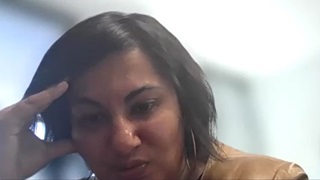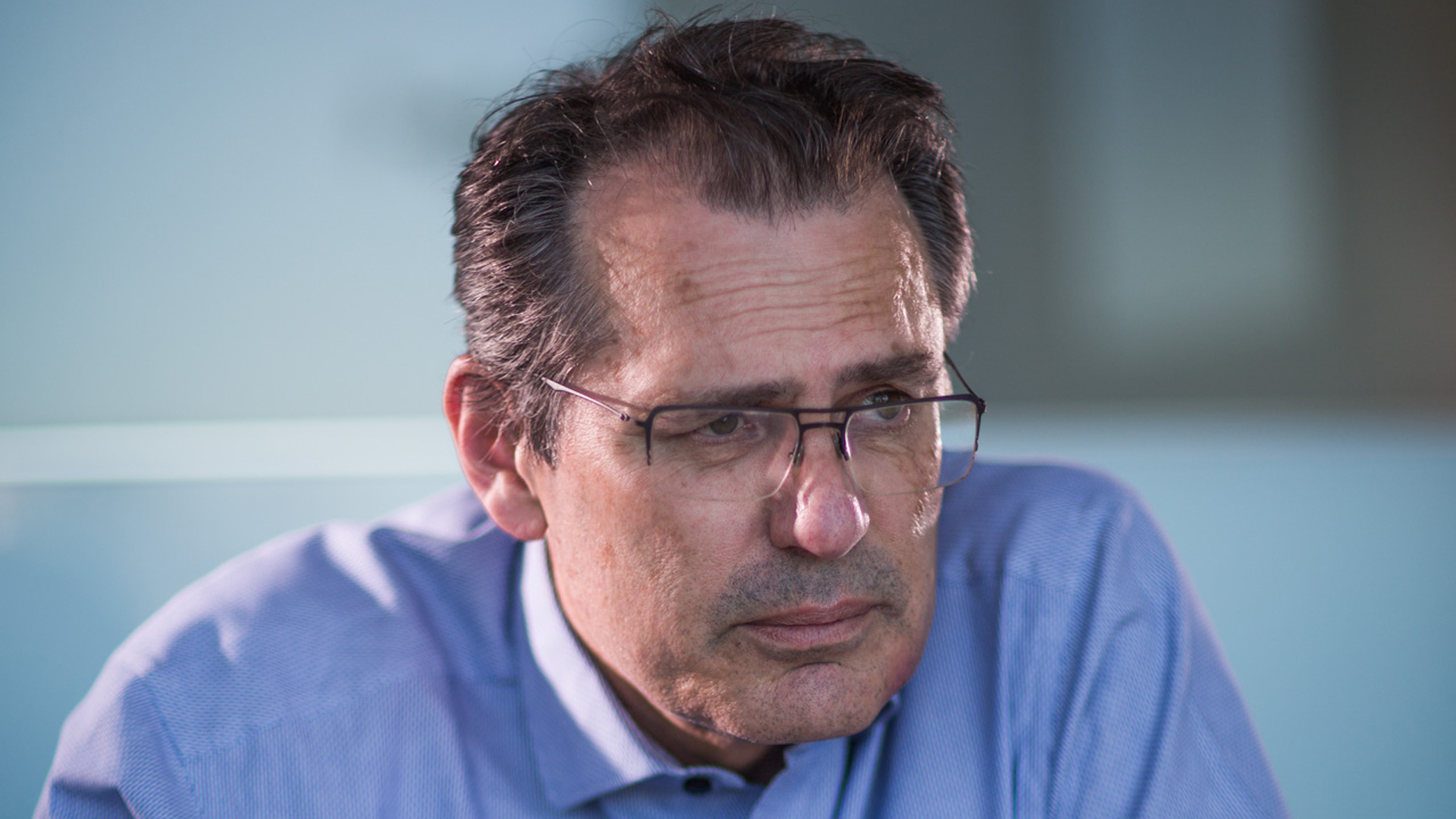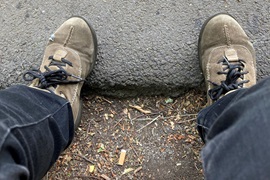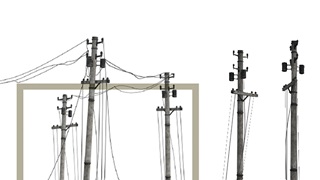
First person
Michelle David in conversation with Ingeborg Alexander | Issue 21 | 2022


Andrew Robinson—Norton Rose Fulbright’s global chair and the chair of the South Africa practice—in conversation with Ingeborg Alexander in January 2020.
On my father’s side the line is Scottish. We are descendants of Robert the Bruce—the one who defeated Edward Longshanks at Bannockburn in 1314, the one who said try, try and try again. Crieff is one of the old seats in Scotland and my middle name is Moncrieff, so that’s the root.
It was one of those traditional families. The boys all went to Rugby—some were expelled. Everybody went to Trinity College, Oxford. Some were lucky not to be sent down.
My grandfather was in Persia teaching at the Shah’s harem when the First World War broke out. He returned to England via Turkey, Russia and Poland, paying his way by becoming an indispensable fourth in a well-heeled bridge school. He was a Colonel in the Sherwood Foresters and for part of the Second World War he trained Orde Wingate and his Chindits in Burma in jungle survival tactics. What he knew about that is anyone’s guess.
My grandmother’s family were from Dublin, mostly professionals, with the odd poet thrown in.
On my mother’s side, it’s all Welsh, mostly musicians undone by the demon drink; but very Welsh, deeply Welsh. Apart from my grandfather—he was a Cockney, proper Cockney. He started out life as a professional boxer. His career lasted two fights, both of which he lost.
My father spent the Second World War in Canada and was desperate to join my grandfather’s regiment when he got back, but by that time there was no recruitment. He did manage to get into the Royal Marines.
He met Seretse Khama at Trinity and they became good friends. Legend has it they met because the Trinity people put weedkiller on the lawns of Balliol, and Seretse was at Balliol. My father got up to all sorts of nonsense, much to my aunt’s delight and his mother’s horror.
When my father finished at university, Seretse said, ‘What are you going to do?’ My father had no idea, so Seretse said, ‘Why not join the Colonial Service and come out to the Bechuanaland Protectorate? I will land up there one day, and we need people like you.’ This was late 1940s, early 1950s. So my father joined the Colonial Service and got posted to the BP (now Botswana). He loved it, absolutely loved it.
Having my father in the BP helped Sir Seretse (and, perhaps more so, his wife, Lady Ruth) enormously. The Khamas had a shocking time with the British government, but Seretse had an even tougher time with his own people. It took some doing to get Ruth’s acceptance by the Bamangwato, and my dad helped facilitate that.
By all accounts he was a very interesting man. People write about him in books, he was that interesting. And there is still a street named after him in Gabarone. He has been referred to as ‘Robinson the Good’—but, as my mother pointed out when she read that in one of the books, it was not because of his behaviour!
My mother and father met on the boat from Cape Town to London. He was going back on long leave ‘to watch some cricket’ and she was going to an orthopaedic hospital to do a postgraduate course. When she finished, my father said, you must come to Bechuanaland, which she did. Very brave in those days. She arrived to find that he had been despatched into the Kalahari.
There were no certain established routes for our family. They were all travellers.
The family didn’t really warm to my mother until my mother showed she could do The Times crossword puzzle more quickly than my grandmother, who was a proper bluestocking.
I think my father did a brave thing in marrying my mother. He crossed a line.
My sister was born in South Africa. I was born in Oxford. In those days, and I was born in 1961, families tried to arrange the births of children over long leave because it was ‘better’ to be born in England—although my mother didn’t think so, by the way.
I was in no rush to be born. My mother said it was a nightmare. And my father regarded it as a complete inconvenience. This labour just went on and on. He was called from the cricket field when I finally decided to make my entrance into the world. He was still wearing one cricket pad when he arrived, just to make the point that he had also had to sacrifice. He took one look at me and said, ‘Only a mother could love that’, before returning to the cricket match—I was born, you see, there was nothing for him to do. That was the way then.
On the day of my birth I was written into the books at Rugby but my mother said, over her dead body. She was five foot one, Welsh-blooded, so I don’t think that was ever on the cards. In any event, it wasn’t an option later. So I didn’t do the Rugby, Trinity route.
I don’t have regrets. I think one needs to sometimes have regrets, but generally I don’t. I fully understand why some people have regrets, I get that. But when I say no regrets, I think that’s because some regrets hold people back.
In 1964, the family went back on long leave and, on the road from Heathrow, most of the family was killed in a car accident, so that changed everything. I was two and a bit.
My grandmother, my father, my sister and myself were in one car, and my grandfather (who had never learned to drive because he’d always had a batman or a horse) was in the car behind, and there was just this dreadful accident. My father and my grandmother were killed instantly, my sister and I were very badly injured, and my sister died ten days later. My poor mother came upon the accident, which must have been horrendous, beyond belief.
So I was a single child then.
That’s where you tend to realise that life can change in an instant.
You can move on, or you can curl up in a ball and let that trammel you for the rest of your life—my mother was brilliant, she just never ever let that happen. She was a grand woman, an absolutely wonderful human being, in every respect. She dealt with that tragedy.
For thirty years, she helped to run St Anne’s Home, near Cape Town. It’s a home for abandoned children and unmarried mothers from the townships. It’s still going.
I saw both sides of humanity there. I saw what people can do to their own children and their babies. Bizarre. A lot of incest. Young children who had been sexually assaulted by a family member—if they fell pregnant, they were cast out and they would come to the home. Abandoned children. Children who had been taken away from parents because they were being abused in ways which are beyond the telling of it, quite frankly. In all this horror and hopelessness there was the gentleness and love of the staff, who cast no judgement on the mothers or their families.
My mother didn’t do it to earn a living, not at all. We were frugal—we lived off a State pension—but we weren’t poor. In the context of South Africa we were certainly not poor. My mother just devoted herself to other people.
She had enormous faith. She had a very real connection with her God, and her faith saw her through, there’s no question.
My father didn’t share her faith. He was an atheist. My mother told me that she made it very clear to my father that she would marry him, because she loved him, but he was never to interfere with her faith or let his ideas dominate hers.
So, after the accident, my poor mother had to go back to Botswana, pack up everything. Then we went to my grandparents in Cape Town. And I grew up in the Cape Peninsular. A boy, a dog and mountains—there was no end to the adventures we had.
I must have been eight or nine when my mother suddenly decided that, being an only child, I was at risk of growing up a bit soft. She said, ‘You will have to catch a train to your new school’—I’d never caught a train in my life—so there I was on my first day, all dressed up, and she said, ‘I’m going to drop you at Fish Hoek; here is a piece of paper, it says Mowbray on it, it’ll take you about forty minutes, and when you get to Mowbray, you must get off and walk down the hill and you will see the school, just make your way there, you can’t miss it.’ I said, ‘You’ve got to be joking.’ She said, ‘It’s fine, there’ll be other boys on the train dressed like you, just look out for those boys.’ And I got on the train and I didn’t see any other boys. So I kept asking, ‘Mowbray? Is this Mowbray?’ Eventually someone said yes, and I got off and, thank heavens, one of the teachers had caught the train, saw me looking aimless and showed me the way. At the end of school, I couldn’t find my way back to the station, I had no idea. But that’s my mother. You just get on with it.
After that, I always commuted on the train, which was a lovely way to grow up; you learn a lot about people travelling on a train.
I went to St George’s Prep and Grammar Schools, attached to St George’s Cathedral in Cape Town. It was a great school—deeply Anglican, yet some of the most influential teachers there were Catholic. There was a sprinkling of all types of race and background, and religion.
We had a little clapped-out Mini 850, and the son of the chap who was part of the Alfred Dunhill set-up was also at the school, so their Dunhill Rolls Royce used to roll up, and my mother would always seek out the parking space next to it. It brought balance, she said.
We performed Gilbert & Sullivan operettas at school under the great choirmaster Barry Smith. And I learned the piano. My teacher lived at home with his mother—and (I kid you not) a butler.
The train I took to school was segregated. The stations were segregated. Same school, same uniforms, different part of the train. It irritated me as a child, because when you wanted to go to the movies and you were counting your pennies it was cheaper to go in the non-white section, but they wouldn’t let you. I thought that’s just bizarre. I should be allowed to sit wherever I want. And they should be allowed to sit wherever they want. As Mandela said—people are not born racists. It is something that is taught.
The Cathedral was a centre of resistance to the Nationalist apartheid regime. We had a school parliament. Poets, priests and writers came and talked to us, people like Adam Small, poets of the resistance, the struggle. We were encouraged to confront controversy and to respond to it in a thinking and articulate way. Most schools had cadets (it was preparation for conscription); our school said, that’s nonsense, we’re not training boys to go and fight in wars. And our teachers largely ignored the set history books. In geography, we learned about social engineering. All pretty off-beat for schools at that time.
We used to go over to England to see family but it was never a discussion, oh, let’s move to England. South Africa was home. I will stay. I know it.
My son has Africa in his blood; he won’t move far from the bush and the sea. The kayak fishing off the east coast is too much part of his life. My daughter is more international. She is a traveller, she has that restlessness.
So there I was, at seventeen, enjoying school and playing sport, which was my thing. So long as there was rugby, cricket, hockey, I didn’t have to think. The only time I considered a career, I thought being in charge of a steam locomotive would be rather fun.
I could see the growing despair in my mother’s face that I had no idea what I was going to do. So I said, ‘I think I’ll be a journalist.’ Being a journalist was quite a brave thing to do in South Africa, and at that time. They were heroes in a way, because they were bold and brave and every now and again disappeared.
On the day I went to the University of Cape Town to register, it was January and wonderfully warm. The university sits on the slopes of Table Mountain and you can just see Newlands Cricket Ground. Western Province were playing Natal, and everybody wanted to see this great fast bowler called Mike Procter. So I wanted to get down and watch the cricket. There were queues everywhere up at the university. I could sign up for almost anything—English, history, appreciation of music—I thought, what a winner, go and do something like that. But there was no way this was going to happen before lunchtime, so I’d miss the opening salvoes of the cricket. Then somebody said, there are the queues if you want to do law—and they were shorter. So it really was the shorter queue on a hot day.
I never aspired to being a lawyer. Ever. I aspired to being a cricketer. But we had superb teachers on the postgraduate programme and they made you love the law.
I was very ill at the end of my exams—and managed, thank heavens, to miss being called up for National Service during the really awful days of apartheid. (I eventually spent it in the Navy, rewriting their Handbook on the Rights and Duties of Naval Officers in Peacetime.)
I read for a Master’s in maritime studies in Wales under the legendary Professor Cadwallader. It was an astonishing year in a beautiful country with people who talked like they were singing. I loved the Socratic approach to teaching at Cardiff. And the music!
When I got back from Cardiff I met up with my old Cape Town mates. That’s how I met Mary-Anne. She was a farm girl and I was probably everything her parents had warned her about. I had obviously been given a bad press because she simply refused to talk to me. I thought she was a bit peculiar, quite frankly.
She comes from a Kwa-Zulu Natal sporting and farming family. Her father was a race-horse breeder and cricketer and a really tough guy. Her uncle had played cricket for South Africa and Gloucestershire. Her aunt had played on the professional tennis circuit. So I got the sport thing. Not so much the farming bit. I was regarded as a real ‘townie’ and not to be trusted.
Silwood Kitchens is like a finishing school for, amongst other things, cordon bleu cooking. That’s what Mary-Anne was doing in Cape Town. When she came back to Durban, I had just got a job there in a shipping practice, and my friend said, ‘Keep an eye out for Mary Anne, will you, whilst you are in Durban’. It was very awkward: she really didn’t like me. But I did my duty by my friend and phoned her, ‘Do you want to come to a movie?’ She was always too busy, too tired, just not interested. Then she learned I could play tennis, and they needed a fourth. She had the most wonderful backhand down the line.
She’s quite a tough customer. At the age of twenty-one she was running a trucking company.
I proposed in Santorini, on Nea Kameni, the little volcano island in the Aegean Sea. That was great. Asking her father for permission beforehand was harrowing—but a necessary rite of passage.
I’m very lucky to have met her, I must tell you. She has a great instinct for things, great fortitude. It’s worked very well for us as a family.
Home is a place on the north coast of Kwa-Zulu Natal. We live in the thick coastal bush, surrounded by animals and birds. It’s beautiful. Our sanctuary.
When you lose a father whom you never knew—and I have no recollection of him at all—it’s easier. I feel terrible for people who lose a father when they’re ten or they’re fifteen, that’s awful. And I wasn’t abandoned. In fact, I would imagine he was mildly irritated by the way things turned out, frankly.
I’d like to think it made it easier when I had my own children. I knew that loneliness when you needed a male adult to sort you out, I knew what that was like, and I never wanted that for my children.
Once I had started working, my mother went hiking and travelling, from the Okovango Swamps to Siberia, from Petra to Xian. Her shoes were always dusty.
She must have been seventy-five when she passed. Very sudden. That was the way it should have been—she couldn’t have done slow, she never did slow in her life.
She doesn’t have a grave. She wouldn’t want one. That’s not her style, to have a grave.
It’s not the Welshness, it’s the frugal.
She’s got a little plaque. It bears her name: Judith.
Interview by Ingeborg Alexander. Photograph by Ivan Maslarov. First published in RE: issue 17 (2020)

James Reid. Sacha de Klerk. Nicola Liu. Andrew Robinson. On the subject of shoes.| Issue 20 | 2022

Yui Ota-Barclay returns to Japan a changed woman; Russ Trice finds joy in LA; Andrew Robinson mourns the passing of Archbishop Tutu | Issue 20 | 2022
© Norton Rose Fulbright LLP 2026